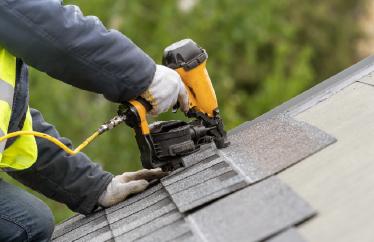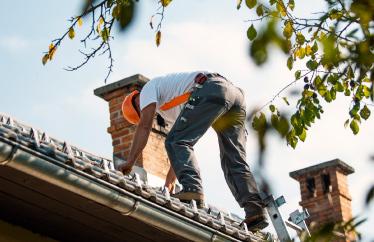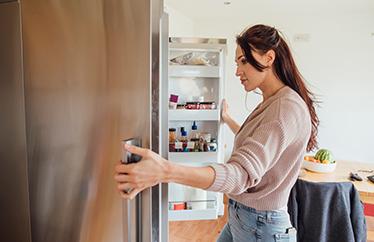7 Proactive Plumbing Care Tips

Hippo knows that as a homeowner, doing things preventatively is always a safe bet. We gathered together a quick list of 7 easy things to do to keep your home’s plumbing healthy. Giving your system regular attention can help to prolong its life and serve to prevent leaks. This will avoid costly repairs in the long run.
Before we get started, make sure you know where your home’s main water shut-off valve is. While conducting some customer interviews recently, many indicated that they didn’t know where their main water valve was until it was too late. Set yourself up for success now so if there’s ever a leak or water emergency, you can quickly turn off the water to your entire home.
Keep reading to learn about ways to care for your home’s pipes through proactive plumbing.
Don’t Over Use Chemical Drain-Clearing Products
As you may have guessed, clogged drains are the #1 home plumbing issue. But it is essential to know when to use the drain-clearing products you can buy over the counter and when it would be better to find an alternative. These products can sometimes do more harm than good, primarily when used to treat a recurring problem. Overuse can actually erode cast-iron drainpipes.
If it is just a one-time slow drain, you can do some proactive plumbing by using a drain cleaner. But if you are aware the clog may be too tough for the cleanser or it is a recurring problem, it is better for the health of your pipes to snake the drain and altogether remove whatever is clogging the line—snaking not in your wheelhouse? No problem. Call your local plumber to help.
Combat Future Clogging
Clogs put added pressure on your already hard-working pipes. This stresses and shortens their lifespan. Avoid plugging up any of your lines by knowing what goes down your drains. Keep kitchen drains clear of grease and any food scraps, prevent hair build-up in bathroom drains, and ensure only toilet paper goes down toilets.
Pare Down the Pressure
Who doesn’t love high water pressure, especially when you’re taking a shower or doing the dishes? The truth is that the pressure may be set too high, and that added pressure is stressing your pipes, increasing the likelihood of a leak. This is an easy fix. Go to your local hardware store and pick up a hose bib gauge. You simply attach it to an outside spigot and turn on the water. You are looking for the pressure to measure somewhere between 40 and 85 psi. If it is above 85 psi, you may want to consider speaking to a plumber about installing a pressure reducer to ensure the longevity of your pipes.
Hard Water is Hard on Pipes
If you have what is known as hard water, that’s water with a high mineral content; it shortens your plumbing’s overall lifespan. Even though they are naturally occurring, those minerals will build up inside the pipes, which restricts the flow, building the pressure up. Hard water can also corrode joints and fittings. Addressing your hard water issue will not only reduce stress on your pipes, but by removing particles and chlorine from your water, you will also enjoy cleaner drinking water.
Folks raised in areas where hard water is common may not even realize their plumbing is at risk. Be on the lookout for a white buildup around your faucets and especially on the showerhead. Once you determine you have hard water, you have a few proactive plumbing options. There are traditional, sodium-based softeners that will require a professional to install, and there are new electronic softeners that can be installed easily by the homeowner.
Get Serious About Your Septic
It is not surprising that sewage lines or septic tank talks don’t happen as naturally as other home improvement conversations. Normalize thinking about and talking about your sewage or septic tank. It is one of the most critical systems running out-of-sight, out-of-mind in your home. And you, of course, want to keep it that way. First, you will want to figure out if you have municipal sewers or a septic tank. Municipal sewers will require a professional plumber to snake the main sewage cleanout every 3-4 years. If you have a septic tank system, get in touch with a septic system professional like Roto-Rooter or Mr. Rooter so that they can come and pump the tank. It is imperative to have this done every three to five years to avoid backups and extreme damage to the tank itself.
Insulate Your Pipes
Even if you live in an area that rarely sees freezing temperatures, you will want to add insulation to pipes that run through the cold parts of your house. Lines in the garage, running through the basement, and places like that are at risk of freezing and should be covered even more so in the case of rare freezes to avoid frozen pipes. Insulating your pipes will also keep the water the temperature it is supposed to be, taking some of the burden off of your water heater.
The Faster the Fix, the Better
Neglecting or avoiding doing preventative maintenance for your home’s plumbing will end up costing you so much more in the long run: more time, more money, more aggravation. Stay ahead of costly repairs by taking care to address the above proactive plumbing tips and always remember that if problems do pop up, fix them quickly. Even small leaks can cause significant water damage or mold.
Hippo customers can even go the extra mile with their home maintenance by taking advantage of our complimentary Hippo Home Care service. Call today to speak with one of our HHC experts about plumbing maintenance, or any other home maintenance concern or issue you may have. It's free and our pleasure to provide this service to our Hippo customers.
From the beginning, Hippo has focused on helping our customers take care of their homes proactively. Please continue to explore the Hippo Blog, Learn Center or follow us on social media for more tips and tricks on how to care for your dream home, proactively, of course.



